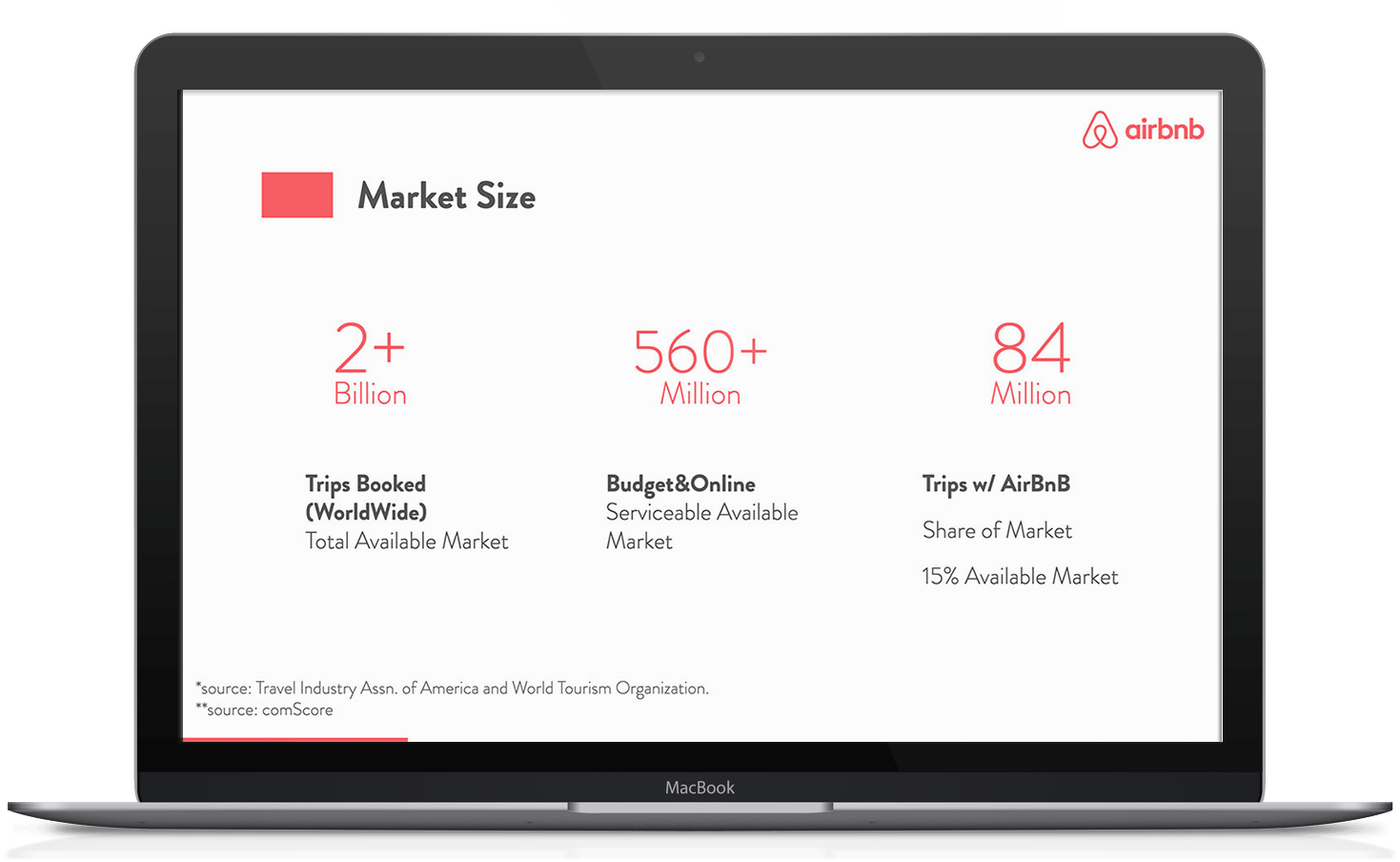Investors, Pitch Decks, and You: How to Get Funded
One of the biggest obstacles that you can run into when developing an app is money. Business overhead, logistics, paying developers and designers and...

A pitch deck is a must-have tool for startups seeking funding. It’s designed to get investors excited about the opportunity of working with you and present the facts that show why your company is a good bet. It allows investors to quickly see the match between your product and a market need, how their investment will impact your success, and the return you’re projecting. It also gives you the opportunity to show that you as the founder have the industry experience, team-building chops, and drive to execute. We’ve been immersed in the startup world over the last several years, and we’ve seen a lot of pitch decks as a result. The pitch decks that are the most successful typically have ten slides in common. In this post, we’re sharing the essential slides for a winning pitch deck.
One of the first things investors want to know is if there is a viable market opportunity in your idea. What problem are you aiming to solve? Who has the problem? What’s the impact of the problem? And how can the opportunity be monetized? Use this slide to tell a story to capture attention immediately and make your pitch more memorable.
Paint a clear picture of the solution you’re proposing and the value to your target market. How is this solution better or more thorough than the existing options for solving the problem? Also use this slide to describe why now is the right time to launch. What’s going on in the industry? What market forces are taking effect? Where are these developments headed? Show investors that your business will be scalable so they’ll understand how their investment will grow.
This slide is your opportunity to describe your vision for your product. Help investors to better understand it by showing a prototype in action. If investors can easily visualize your product, they’ll be better able to judge its potential. If you don’t have a prototype, you can present diagrams and flowcharts that are representative of the product. Don’t forget to share an overview of the technology you’re planning to use, and be prepared to explain your reasoning for your choices.
This slide is of high interest to investors. They want to know the size of the market opportunity, which will directly impact their expected ROI. Cover your competitors and point out the gaps that they’re not filling. Review your value proposition and show why your product solves the problem in a truly unique way. Display a timeline of market growth, showing how the industry or market has developed and grown.
Explain your proposed business model, including how you’ll make money, your pricing structure, and how you’ll reach your target audience. Get very specific here. Are you planning on using a freemium model? A flat up-front fee? A free trial and monthly subscription? What about pricing tiers? Investors want to see that you have a strong strategy to monetize your product, attracting and retaining users.
In this slide, dive into the details about how you plan to connect with your prospective customers. Do you have experience in marketing or sales or do you plan to partner with someone who does? What marketing tactics do you plan to use to get started, and how will those tactics change as you grow? What resources can you lean on?
The team is also vitally important to investors. A great idea is nothing without a dedicated, skilled, experienced, and intelligent team to execute it. In this side, describe who’s leading your startup and what makes them qualified to execute your vision. Share biographies and photos of your co-founders, key employees, and strategic partners. Present a smattering of relevant accomplishments to demonstrate why your team is the right one to execute your idea.
Your investor pitch won’t be your debut with your product. For investors to commit, they want to see momentum. Ideally, you will have a prototype that you’ve tested in the marketplace and presales that reassure investors in the market’s willingness to pay for your product. Share key metrics like revenue growth and customer acquisition. If you’re in the early stages, share survey responses or the results of one-on-one interviews.
This slide is tricky because, unless you’re building on an existing business, you and your investors know that you don’t have a track record of financials to inform your projections. But there are ways to provide meaningful data here. To back up your projections, share your customer counts (including presales), conversion metrics, and average sale to date. Your mission in this slide is to show investors the financial direction of your business. Also share any prior funding, which will help demonstrate that others have seen promise in your company.
Tell investors what level of investment you’re seeking. Present this level as a range. Explain exactly how you’ll use the funding and the results you expect to see. In this slide, you’ll also tell investors the equity you’ll provide the investor in exchange for their partnership as well as how and when you expect to pay back the investment.
Here's a final checklist table to ensure your pitch deck is ready to go:
|
Problem |
Is it clear, specific, and supported with data or a story? |
✅ |
|
Solution & UVP |
Does it highlight why you’re different (not just features)? |
✅ |
|
Product |
Do you show visuals, screenshots, or a prototype? |
✅ |
|
Market |
Is your market size realistic (not inflated)? |
✅ |
|
Business Model |
Can you explain it in one sentence? |
✅ |
|
The ask |
Is your funding request specific and tied to milestones? |
✅ |
A successful pitch deck is based on real facts and data. But numbers aren’t enough to sell an investor on partnering with you. Storytelling makes the numbers come alive, allowing investors to grasp your vision and see why your business has promise and why your team is the one to lead the company to success. Make your pitch concrete by providing examples and real-life stories.
Airbnb (Problem + Solution)
- Their deck clearly defined the travel problem (expensive hotels, lack of local experience) and their solution (affordable short-term rentals).
Uber (Market Opportunity)
- They showed investors the size of the urban transport market and the potential for disruption.
Dropbox (Traction)
- Instead of overloading slides with text, Dropbox famously used a simple demo video to prove early traction and explain its product concept, leading to massive sign-ups even before launch.
Tip: Real-world examples prove that simple, clear slides and evidence of traction are often more persuasive than over-designed decks.

Image Source: Slidebean
Most investor decks work best with 10–12 slides. Enough to cover the essentials, but short enough to hold attention.
A clear definition of the problem should be provided so that investors see an opportunity to fix it.
Aim for 10–15 minutes. Investors may stop you with questions, so keep your main points concise.
Yes, but focus on realistic assumptions. Even if you don’t have revenue yet, show a thoughtful plan for monetization and scaling.
Ready to build more than just a pitch deck?
A great deck gets you in the room, and a strong product vision closes the deal. Our SolutionLab workshop helps non-technical founders validate their ideas, create a clear roadmap, and turn slides into a real product investors believe in.
Get in touch, and we’ll schedule a call!
Subscribe to our newsletter.

One of the biggest obstacles that you can run into when developing an app is money. Business overhead, logistics, paying developers and designers and...

New startups don’t have a history of operations or sales, so they often have trouble knowing how to create financial projections for their business...

Startup funding often brings to mind dramatic pitch moments in front of investors, similar to the scenarios seen on Shark Tank. However, for most...
Post
Share